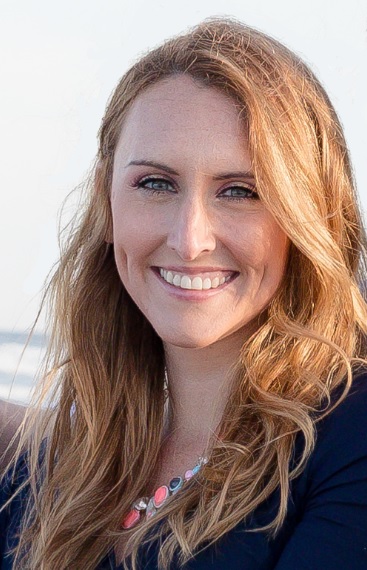dOver the course of their lifetime, one in eight women will develop invasive breast cancer. According to breastcancer.org, an estimated 266,120 new cases of invasive breast cancer are expected to be diagnosed in the US.
October is Breast Cancer Awareness Month, and one local woman is using her experience to share the importance of genetic testing and being aware of one’s family health history.
Seven years ago, Millstone resident Shannon Pulaski gave birth to her twin daughters two months early. In that same hospital, just 10 days later, Pulaski’s mother was diagnosed with ovarian cancer. A week later, her aunt was also diagnosed with ovarian cancer.
After Pulaski spent her time between hospital floors visiting her daughters and mother, her mother’s gynecological oncologist ran a BRCA1 test, which detects mutations in the breast cancer susceptibility gene.
Pulaski’s mother was BRCA1-positive, meaning she had a 72 percent chance of developing breast cancer in the future.
“I ended up finding out that if my mom or my dad have the BRCA1 genetic mutation, I have up to a 50 percent chance of getting that same mutation,” Pulaski said.
Four months after giving birth, Pulaski made an appointment with a genetic counselor, decided to move forward in genetic testing and also tested positive for the BRCA1 mutation.
“I didn’t have a good understanding until that time about how prevalent cancer was in my family,” she said.
Because she was tested early, Pulaski was able to start the conversation with her healthcare providers about preventative surgeries, which Pulaski describes as a “carefully thought out process.”
“It’s not a simple choice, but for me, it’s an obvious choice, but that might not be the case for every person,” she said. “What’s right for me might not be right for another family.”
As her children grew older, there became a need for Pulaski to answer all of their questions about her doctor’s appointments, and why she was going more frequently.
During this time, Pulaski began looking for resources on how to start that conversation with her children, but she was unable to find any that was age appropriate.
“I sat down with my girls, and we started to talk about genetics in a simple way — you get your freckles from your mom and your height from your dad,” she said. “We drew pictures, and once we had a collection, I started thinking, ‘This could kind of be a book.’”
Her children’s drawings soon became a part of Pulaski’s book “Mom’s Genes,” which was published by Cure Media Group in January. After an illustrator created professional adaptations of the drawings, Pulaski wrote a story about how to talk to children about learning about their family’s health history and genetics.
“It has just been this catalyst for all of this work that we’re doing right now,” she said. “I decided it would be helpful for the community to provide resources to parents where they could start conversations with their family about family health history. It didn’t have to be cancer specific, but it’s very helpful for families who have a strong history.”
In addition to her book, Pulaski gives back to her community through advocacy and raising awareness on BRCA cancers. She currently volunteers with organizations such as Bright Pink, The Basser Center at The University of Pennsylvania and Facing Our Risk of Cancer Empowered (FORCE).
With Bright Pink, a non-profit organization that teaches young women about breast and ovarian health, Pulaski worked as a Pink Pal — a program that has since been discontinued. As a Pink Pal, she spoke one-on-one with women about different issues that may come up as a mom diagnosed with breast or ovarian cancer.
“When I sat down with my genetic counselor [seven years ago] he handed me this pamphlet for Bright Pink and I got my own pinkpal and I had to pay it forward. I would definitely call it a calling,” she said.
As she grew as an advocate, Pulaski became aware of the Basser Center, which is focused on advancing science when it comes to BRCA cancer, as well as providing education and research. There, she serves on the Young Leadership Council, which “serves as a forum for young adults to become more engaged with the mission of the Basser Center, stay informed about the latest advances in BRCA-related cancer research, and advocate and raise awareness of the Center,” according to the website.
“They are investing in hugely promising research initiatives that are going to change the course of treatment for these types of BRCA cancers,” she said.
The Basser Center website states, “We have created a global network of scientists, geneticists, physicians and counselors as allies in this mission. We have the promise of a vaccine to stop BRCA cancers from ever developing.”
Within the last six months, Pulaski has becoming involved with FORCE, which advocates for change from a legal perspective.
“I’m an attorney by trade, so becoming involved in that avenue in advocacy has always intrigued me and I’m really excited for the work we’re going to do,” she said.
Pulaski said that it is “vital” to have conversations about genetics and health within the family, both for men and women.
“It makes you a stronger health advocate for yourself,” she said. “If you are facing a cancer diagnosis in the family — or if you, yourself, are at a high-risk for cancer — it’s important to keep a conversation going with your family, your support, your healthcare provider and inform yourself, educate yourself and just breathe as much as you can.”
Pulaski will speak in a panel, “A Women’s Perspective on Genetics and Breast Cancer Awareness” on Oct. 27 at Rider University. To register to attend, visit https://alumni.rider.edu/homecoming/homecoming-2018-reg-.

